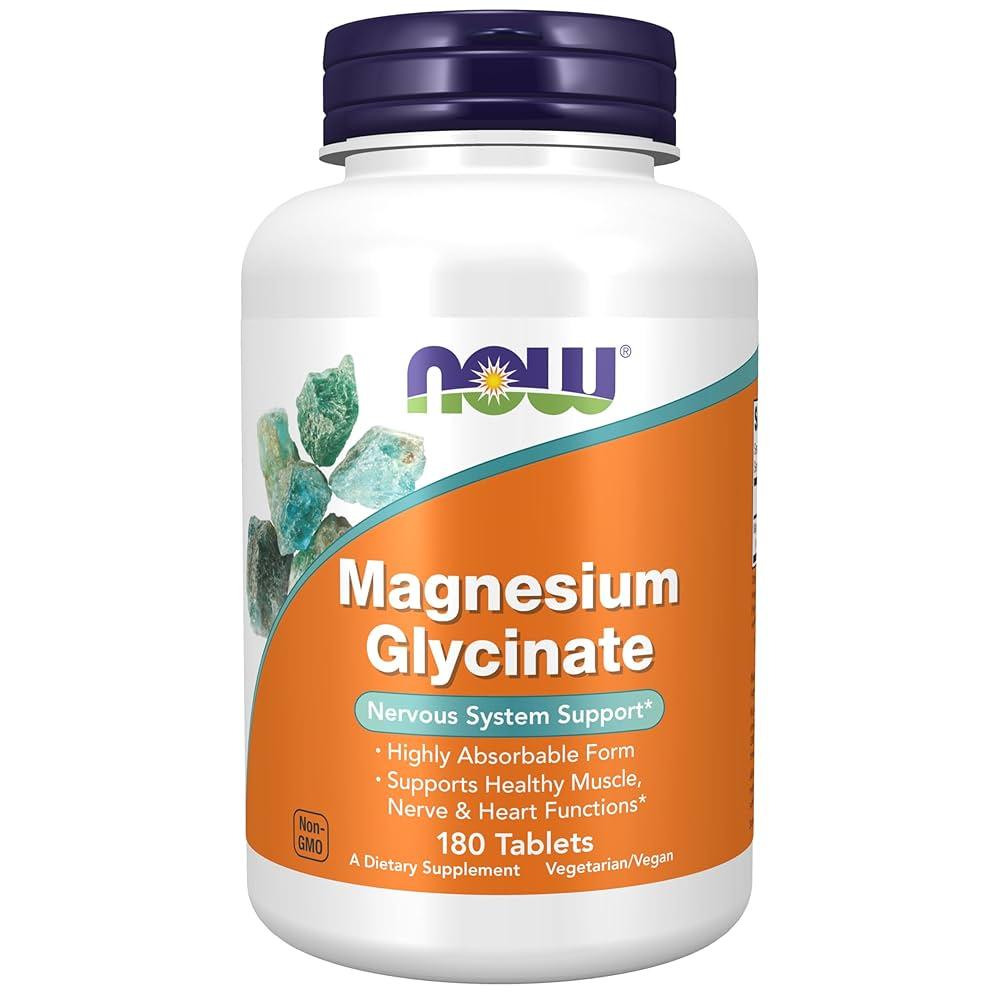In the intricate world of dietary supplements, the search for the most effective forms of essential nutrients often leads us to explore the nuances of bioavailability—the degree and rate at which active ingredients are absorbed and utilized by the body. Two popular choices in the realm of magnesium supplementation are magnesium glycinate and magnesium oxide, each claiming its own set of benefits and applications. But when it comes to translating these claims into actual health advantages, how do they truly stack up against one another? In this article, we embark on a comprehensive exploration of a bioavailability comparison study, shedding light on the differences and potential efficacy of magnesium glycinate and oxide. Join us as we delve into the scientific landscape, aiming to guide you toward informed decisions for your health and well-being.
Understanding Bioavailability: The Key to Effective magnesium Supplementation
When it comes to magnesium supplementation, understanding bioavailability is crucial for optimizing health benefits. Bioavailability refers to the proportion of a nutrient that is absorbed and utilized by the body. In the context of magnesium, different forms of supplementation vary greatly in their bioavailability. For instance, magnesium glycinate is known for its superior bioavailability because it is chelated with glycine, an amino acid that enhances absorption. On the other hand, magnesium oxide, while often touted for its high magnesium content, is considered less effective due to its lower absorption rates, often resulting in gastrointestinal discomfort.
To illustrate the differences in bioavailability among various magnesium supplements, consider the following table:
| Form | Bioavailability | Common Uses |
|---|---|---|
| Magnesium Glycinate | High | Muscle relaxation, anxiety relief |
| Magnesium Oxide | Low | Laxative, budget-friendly |
| Magnesium Citrate | Moderate | Constipation relief, digestion |
Choosing the right magnesium supplement is not merely a matter of preference but a decision that can significantly impact health outcomes. By prioritizing forms with higher bioavailability, such as magnesium glycinate, individuals can ensure they are receiving the full benefits of this essential mineral. Recognizing the unique properties of each form allows for informed choices tailored to specific health needs.

Magnesium Glycinate: The Gentle Giant of Mineral Absorption
when it comes to mineral absorption, magnesium glycinate shines brightly as an optimal choice, often referred to as the “gentle giant” for its superior tolerance and bioavailability.Unlike magnesium oxide, which typically lags in absorption efficiency, magnesium glycinate offers a well-rounded approach to supplementation. Here are some reasons why it’s preferred:
- Higher Bioavailability: Magnesium glycinate is chelated with the amino acid glycine, promoting better absorption in the gastrointestinal tract.
- Gentle on the Stomach: Many users report fewer digestive upset and laxative effects compared to oxide forms.
- Promotes Calmness: The glycine component may support relaxation and sleep quality, adding extra benefits beyond mineral support.
To put the differences into viewpoint, consider the following comparison of magnesium glycinate and magnesium oxide based on absorption rates:
| Form | Absorption Rate (%) | Gentle on Digestive system |
|---|---|---|
| Magnesium Glycinate | 60-80 | yes |
| Magnesium oxide | 4 | No |
Ultimately, choosing magnesium glycinate over magnesium oxide may lead to enhanced absorption of this vital mineral, ensuring that your body can effectively utilize it for numerous physiological functions. As awareness grows about the importance of bioavailability in supplements, magnesium glycinate stands out as an effective and user-friendly solution for those looking to enrich their mineral intake.

Magnesium Oxide: A Weighty Alternative with Unique Drawbacks
While magnesium oxide stands out for its higher magnesium content,it is often less bioavailable compared to other forms like magnesium glycinate. This means that although each tablet may contain a meaningful amount of magnesium, your body may not absorb as much of it as you would hope. The low solubility of magnesium oxide in water makes it more challenging for the digestive system to break down and utilize effectively. As a result, even if you consume the recommended dosage, you might find its efficacy lacking, especially for those with specific dietary deficiencies or increased magnesium needs.
Moreover, magnesium oxide can sometimes lead to digestive discomfort. While many people tolerate it well, some individuals may experience symptoms such as diarrhea or stomach cramps. This is partly due to the osmotic effect—where magnesium attracts water into the intestines—which can amplify gastrointestinal issues. Therefore, it’s essential to weigh the potential benefits against the drawbacks of magnesium oxide, particularly if you’re sensitive to digestive disturbances or seeking a more efficient magnesium supplementation.

Choosing the Right Form: Recommendations for Optimal Health Benefits
When it comes to selecting a magnesium supplement, bioavailability becomes a key factor that can significantly influence its effectiveness in supporting optimal health. Magnesium glycinate is often praised for its high absorption rate and minimal gastrointestinal upset, making it an excellent choice for those seeking both the benefits of magnesium and ease of digestion. In contrast, magnesium oxide is less bioavailable and may not be absorbed as efficiently by the body, which can lead some individuals to experience a higher incidence of digestive discomfort. Thus, if you’re aiming for greater health benefits, consider opting for magnesium glycinate, especially if you are supplementation-challenged.
Here are some considerations to keep in mind when choosing the right form:
- Intended Use: If you need magnesium for anxiety or muscle relaxation, magnesium glycinate may be ideal.
- Digestive Sensitivity: For individuals prone to digestive issues, magnesium glycinate is recommended due to its gentle formulation.
- Cost and Availability: Magnesium oxide is often more affordable and accessible, but at a potential cost of effectiveness.
Ultimately, evaluating your individual health goals and needs can help you make an informed choice in the magnesium arena.
| Form | Bioavailability | Common Benefits | digestive Tolerance |
|---|---|---|---|
| Magnesium Glycinate | High | calmness, Sleep Support | Excellent |
| Magnesium Oxide | Low | Laxative Effect, Basic Supplementation | Moderate |
the Conclusion
the journey through the intricate world of magnesium supplementation has unveiled the nuanced differences between magnesium glycinate and magnesium oxide.While both forms offer unique benefits, their variances in bioavailability highlight the importance of tailored nutritional choices. As we’ve seen, magnesium glycinate emerges as a more readily absorbed option, making it a standout for those seeking to enhance their magnesium levels effectively. Conversely, magnesium oxide, though lower on the bioavailability scale, still holds value, particularly in situations where cost and dosage flexibility come into play.Ultimately, the choice between magnesium glycinate and oxide should be guided by individual health needs, lifestyle factors, and, most importantly, consultation with healthcare professionals. As research continues to evolve, staying informed will empower you to make the best decisions for your wellness journey. In a world where every mineral counts,let magnesium serve as a reminder of the gorgeous complexity of nutrition,inviting us to explore the choices that best support our bodies and lives.






